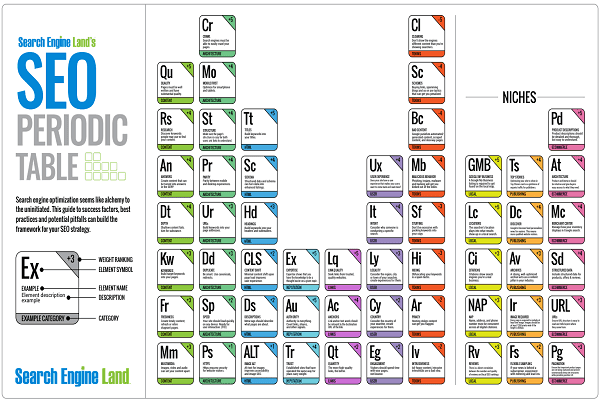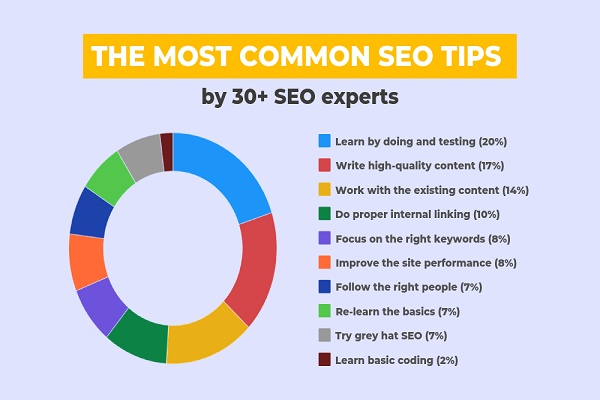What is Search Engine Optimization (SEO)?
Search Engine Optimization
“Search Engine Optimization” is known as SEO. It simply refers to the process of making changes to your website to make it more visible when users search for goods or services associated with your company on Google, Bing, and other search engines. The more visible your pages are in search results, the more likely it is that you’ll get noticed and draw both new and returning clients to your company.
How does SEO function?
Search engines like Google and Bing utilize bots to move between websites, acquire information about them, and index them in order to crawl online pages. Imagine the index as a massive library where a librarian could retrieve a book to assist you.
The order in which pages should appear in the search results for a given query is then determined by algorithms that examine pages in the index while accounting for hundreds of ranking factors or signals. In our hypothetical library, the librarian has read every single book there and is able to pinpoint which one will contain the solutions to your problem.
You may think of our SEO success factors as stand-ins for various user experience elements. It’s how search engine bots determine just how well a website or web page can provide a searcher with the information they’re looking for. Because you cannot buy higher organic search rankings, unlike paid search ads, SEO professionals must put in the necessary effort. In response, we are here.
The factors are arranged into six main categories and assigned weights based on their relative importance to SEO in our Periodic Table of search engine optimization Factors. For instance, crawl-ability and speed are crucial site architecture factors, and content quality and keyword research are key components of content optimization.
A list of Toxins that undermine search engine optimization best practices is also included in the recently updated SEO Periodic Table. These are shortcuts or tricks that, in the past, when search engine algorithms were much simpler, may have been sufficient to ensure a high ranking. They may even continue to work for a short while, at least until you are discovered.
Additionally, we have a brand-new section on niches where we discuss in-depth the search engine optimization success criteria for three important niches: local search engine optimization, news/publishing, and e-commerce SEO. Knowing the specifics of SEO for each of these Niches can help you succeed in search results for your small business, recipe blog, and/or online store, even though our overall search engine optimization Periodic Table will provide you with the best practices.
The search algorithms are made to reveal authoritative, pertinent pages and offer users a productive search experience. Your pages may rank higher in the search results if you optimize your site and content with these variables in mind.
What makes SEO crucial for Marketing?
Due to the fact that consumers do billions of searches annually, many of which are done with a commercial intent to learn more about goods and services, SEO is an essential component of digital marketing. The main source of internet traffic for brands is frequent searches, which supports other marketing channels. Your bottom line may be significantly impacted by increased visibility and a higher ranking in search results than your rivals.
Nonetheless, during the past several years, search results have changed to give consumers more immediate responses and information that is more likely to retain them on the results page rather than sending them to other websites.
Additionally, keep in mind that elements like Knowledge Panels and Rich Results in the Search Results can improve visibility and provide users with more information about your company directly in the results.
In conclusion, search engine optimization serves as the cornerstone of a complete marketing ecosystem. When you know what your website visitors desire, you can utilize that information to improve your campaigns (paid and organic), website, social media presence, and more.
How can I discover SEO?
Our Periodic Table Of SEO Factors will introduce you to all the essential ideas you must understand, including the components for effective on-page and off-page search engine optimization as well as the “Toxins” or strategies that might harm your rankings.

Three search niches are also examined in the table and report that goes with it:
1. First, local SEO
2. News/Publishing SEO
3. E-commerce SEO
This SEO Guide’s framework is the Periodic Table of SEO Factors. With these materials combined, you may learn more about SEO and develop a successful approach.
The SEO Guide from Search Engine Land

The Search Engine Land’s Guide to SEO is a companion to our Periodic Table of SEO Factors and takes you step-by-step through the foundations of search engine optimization so you can create a strong plan to increase organic traffic to your website.
We go into greater detail about these elements and highlight practical advice from search engine optimization specialists that will help your website gain more visitors from organic search.
Chapter 1: Types of Success Factors for Search Engines, These on-page and off-page elements can influence your search engine rankings. Along with poisonous SEO techniques to avoid, we’ll also look at niche verticals in SEO.
Chapter 2: Success factors for SEO and content, Keep these things in mind while writing high-quality content that search engines and your target audience will enjoy.
Chapter 3: SEO success elements and site architecture are described in Let’s examine your website’s features in more detail to see how they facilitate user experience and search engine access.
Chapter 4: HTML success factors and SEO code, HTML components, and structured data that help organize the material on your website help search engines interpret your content better.
Chapter 5: Trust, authority, and expertise in search When deciding whether or not to display your website to users, search engines take into account your site’s reputation and authority, user engagement, and other variables.
Chapter 6: The importance of links nowadays and what they reveal to search engines about your content are discussed in Link Building & Ranking In Search Engines.
Chapter 7: Personalization & Search Engine Rankings, These are the user-specific components that can influence the outcomes users perceive, such as location and intent.
Chapter 8: Toxins & Search Engine Spam Penalties, Avoid using SEO “shortcuts.” If you are discovered utilizing these strategies, you can face a manual action penalty or perhaps have your website removed from the search index.
Chapter 9: Emerging Verticals in Search, Users now have new search options, including voice, location, image, and video search. They are all founded on the core principles of SEO, despite the fact that they each offer subtle chances for brands.


